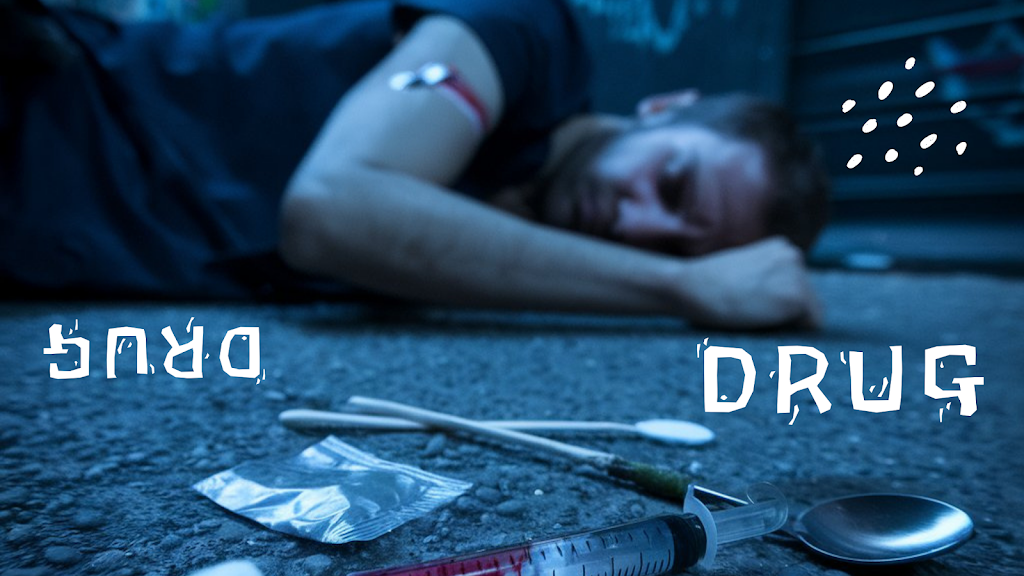In Nepal, the word for addiction, (to get addicted), means more than just a physical struggle. It often leads to a deep, painful loss of self-worth. For many struggling with substance use, their journey is a lonely one, shadowed by an intense, crippling feeling of shame.
This emotional weight is made heavier by Nepal’s close family structures and strong community values. In a culture where family honour, or is everything, addiction is often seen as a failure that deeply dishonours the whole household. It becomes a secret whispered behind closed doors a source of great guilt that isolates the person struggling and leaves family members feeling helpless.
This crushing emotional pressure is often harder to bear than the physical withdrawal. It’s the invisible wall that stops countless people from taking the first brave step toward getting better. The fear of being labelled, rejected, or forever seen as ‘damaged’ holds them captive, even when they truly long for a new start.
The Cultural Barrier: Why Shame Prevents People from Seeking Help
The deep-rooted stigma around addiction in Nepal acts like a heavy blanket, smothering the desire for help.
In many Western countries, addiction is starting to be understood as a complex health issue. But in Nepal, older ideas remain. Addiction is too often viewed as a moral weakness, a lack of willpower, or even a form of punishment. This judgmental atmosphere creates a double battle for the person struggling: the internal fight against dependency and the external fight against society’s judgment.
The result is paralyzing guilt and fear. Imagine a young person in Kathmandu who hid their alcohol problem for years. Their fear wasn’t just disappointing their parents; it was the terror of being unable to attend family and community events, and of their siblings suffering social harm because of their struggles. This fear of losing their place in the (society) makes many continue to struggle in silence, delaying recovery. Tragically, this delay, driven by shame, prolongs the pain and makes the path back even harder. Seeking help often feels like admitting they are a ‘failure.’
Rebuilding the Inner Self: Steps to Restore Self-Esteem After Rehab
Physical detox is the crucial first step, but true, long-lasting recovery begins with emotional healing. It is the hard, but very rewarding, work of turning deep shame into true self-acceptance after addiction.
This is where the real work of rebuilding begins. It’s about more than just staying sober; it’s about figuring out who you are when you’re not using.
-
- Therapy and Counselling (): Getting one-on-one professional help is vital. A caring therapist helps break down years of negative self-talk, replacing the inner voice of criticism with one of kindness and acceptance. This is where people learn to deal with past trauma without turning to substances.
-
- Mindfulness and Spiritual Practices: Activities like yoga, meditation, and quiet reflection () fit well within the Nepali context. They offer a safe way to reconnect with the inner self, the, and grow a sense of inner peace and strength.
-
- Positive Self-Talk (): This means actively challenging thoughts of shame. Instead of thinking, “I messed up everything,” the new thought becomes, “I made mistakes, but today, I am making a new choice.” Rebuilding identity means celebrating small daily wins and knowing that your past does not decide your future.
-
- Purpose and Skills: Getting involved in new hobbies, learning a trade, or returning to school. Finding a purpose fills the emptiness left by addiction with meaningful activity, slowly rebuilding confidence one successful step at a time.
A Safe Space: How Sudhar Kendra Naba Jivan Nepal Helps People Find Joy
The journey out of the darkness needs a guiding light a place where one can let go of shame and begin to heal. This is the role of organizations like Naba Jivan Nepal.
Naba Jivan Nepal offers a safe, judgment-free space a supportive home where a person is treated not as an addict, but as a valued human being on a path to healing. They understand how much the Nepali family and social context affect recovery, and their program is designed to handle both the clinical and cultural sides of getting well.
-
- Holistic Counselling: Their support goes beyond the physical. They use a mix of traditional methods and modern therapies to address the deep emotional reasons for addiction, often linked to stress, unaddressed grief, or the pressure of societal expectations.
-
- Community and Spiritual Guidance: The program builds a powerful sense of community, replacing the isolation of addiction with mutual respect and shared hope. They include practices like yoga, meditation, and local spiritual guidance to help people connect with a sense of higher purpose a strong tool for lasting sobriety.
By providing structure, personalized care, and constant compassion, Naba Jivan Nepal helps individuals rediscover the joy in their lives and create a new, sober purpose.
The Power of Sharing: Emotional Healing Through Group Support
One of the most important parts of the recovery journey is group therapy. When someone walks into a room and shares their story, they realize a powerful truth: they are not alone.
The isolation caused by shame breaks when it is met with empathy. In a group setting, people who have been through the same struggles can truly see and understand each other. It’s a place where masks come off, and vulnerability is seen not as a weakness, but as a strength.
-
- Building Compassion and Friendship: Sharing stories of relapse, regret, and eventually bouncing back creates a strong bond of mutual healing. They learn to practice (compassion) toward themselves by seeing compassion shown to others.
-
- Permission to Open Up: For a Nepali person, sharing deep, difficult emotions can be hard because of social expectations. Group support gives the safety and permission needed to finally talk about hidden feelings of worthlessness, fear, and hopelessness. It’s the sound of a heart mending, supported by the collective strength of friends.
Your Journey to Self-Love Can Start Now
The path from the deep, isolating shame of addiction to the warm light of self-love is a true act of heroism. It begins with courage, not just willpower. It begins by reaching out.
If you or a loved one is struggling under the heavy burden of shame and addiction, remember you deserve healing, you deserve compassion, and you deserve a life full of purpose and joy.
You should not walk this path alone.
Contact Sudhar Kendra Naba jivan Nepal today. Our caring team is ready to offer guidance, a safe space, and proven emotional recovery support to help you or your loved one begin the incredible, life-changing journey of healing and rediscover the light within.




